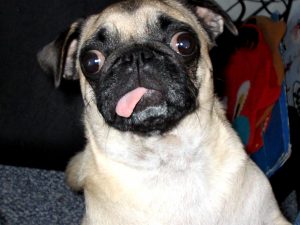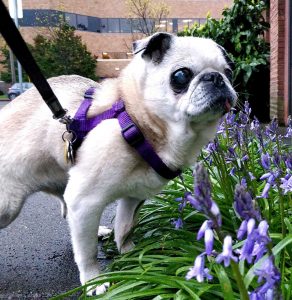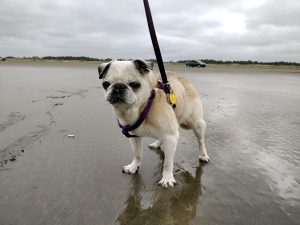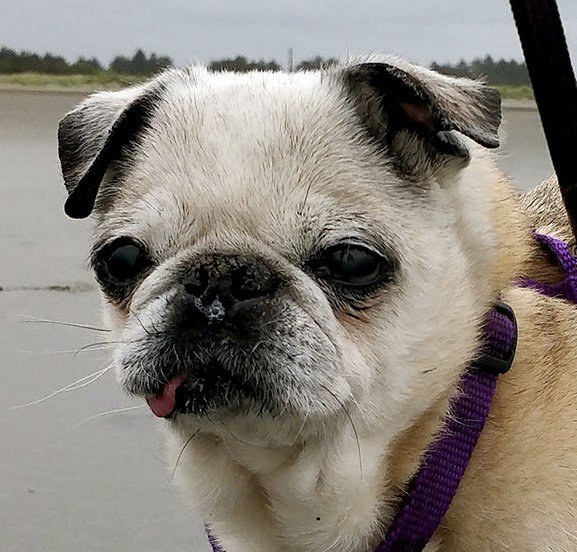
Ravenhurst is an 18 year old Pug who first came to Hawthorne Hills Veterinary Hospital in 2014 for a regular wellness visit. She transferred care to our hospital because her co-owner worked here at the time.
Ravenhurst has had quite the long, comfortable, happy life in the care of her wonderful, diligent owners and we are constantly amazed at how well she is doing for her age.
At Hawthorne Hills Veterinary Hospital we love our geriatric patients and know what kind of extra care they require. We see Ravenhurst every three months for regular check-ups and laboratory tests. Two years ago she started developing recurrent and persistent urinary tract infections that we think may be due to minor, occult urine leakage. With frequent monitoring and medications we have held infections at bay and kept her symptom free for a year.
Arthritis is another big concern with geriatric patients. Ravenhurst is on daily anti-inflammatory pain medications and her owners run her around the house to give her exercise and keep her muscles strong. When animals are on long term medications of any kind (especially pain medications) the doctors at Hawthorne Hills Veterinary Hospital recommend monitoring bloodwork at least every 6 months. This helps alert us to any side effects or emerging conditions that can make administering these medications dangerous. We are often looking for changes in liver or kidney values but sometimes watching for developing diabetes or change in red or white blood cell count.
Ravenhurst is also nice and slim, which is extremely important for healthy joints as dogs age and keeps her respiratory tract healthy. Pugs are part of a group of dogs we call the brachycephalic (short nose) breeds. Because of their short noses, they have a lot of tissue in their throat area which can make breathing difficult. Fat can accumulate inside the chest and around the neck causing further obstruction and eventually leading to respiratory distress. Despite being brachycephalic, Ravenhurst has not experienced any respiratory emergencies which can be common in these breeds.
Ravenhurst shows little evidence of slowing down and we hope to see her make it to her 20s!
If you have a geriatric pet, dog or cat, we’d love to meet them and help you keep them comfortable and healthy in their senior years. Please call to make an appointment with our team.
LINKS:
- Senior Pet Care FAQS: https://www.avma.org/public/PetCare/Pages/Caring-for-an-Older-Pet-FAQs.aspx
- Is Your Dog Now A Senior Pet? https://www.consumeraffairs.com/news/is-your-dog-now-a-senior-pet-072419.html
- How You Can Help a Senior Dog in Need: https://olddoghaven.org/about/about-odh/
- Senior Cat Health Issues: https://veterinarypartner.vin.com/default.aspx?pid=19239&id=4952780
- AAFP – Senior Cat Health Topics: https://catfriendly.com/category-page/seniors/
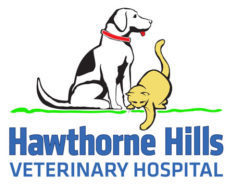
 6512 12th Ave NE
6512 12th Ave NE
